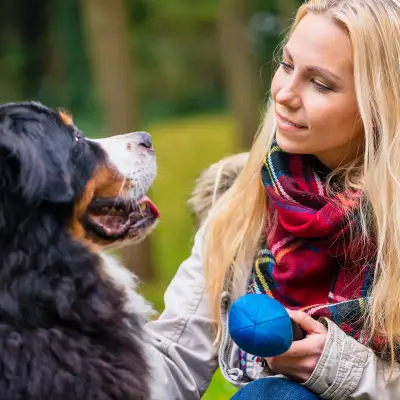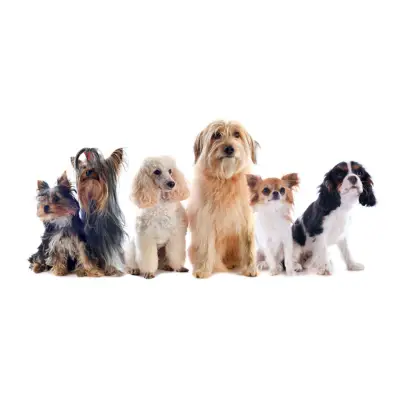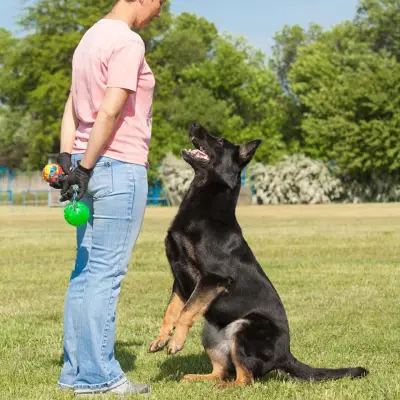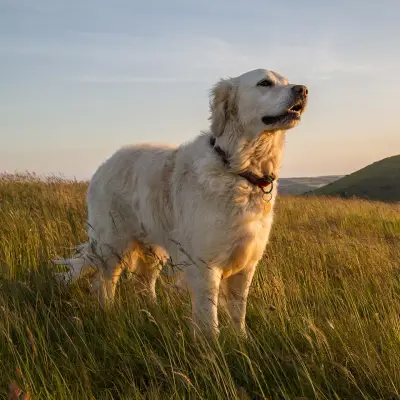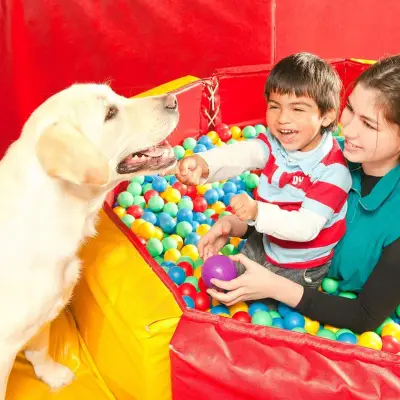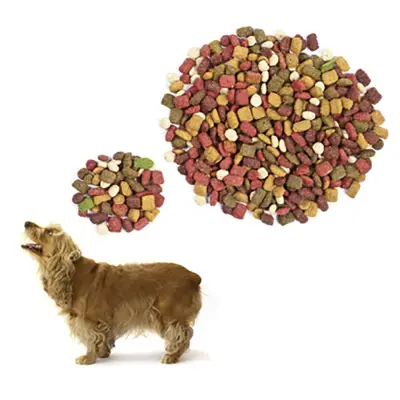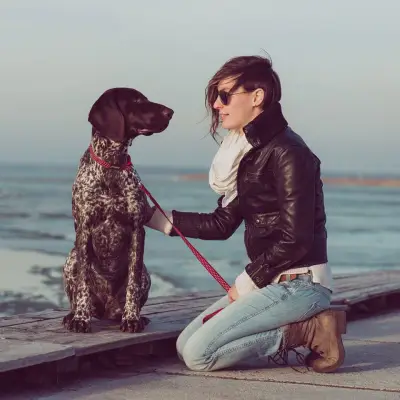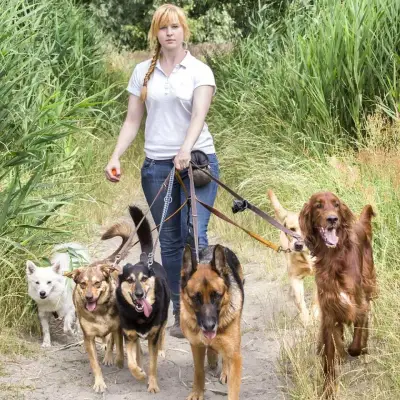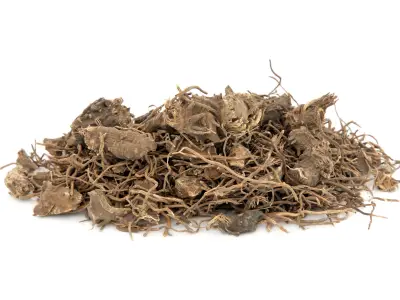As a dog owner, it's essential to be aware of what foods can harm your beloved pet. While dogs may show a keen interest in our food, not everything we consume is safe for them. This comprehensive guide will explore 38 foods that are harmful to dogs, explaining what they are and why they pose a risk.
Jump to:
Recommended for you!
Best Sellers1. Chocolate
Chocolate is a treat many humans love, but it's a dangerous food for dogs. Found in various forms around the house, from candy bars to baking chocolate, it poses a serious risk to your canine companion.
Why Can't Dogs Eat It?
Chocolate contains theobromine, a compound that is toxic to dogs. Even in small amounts, it can cause vomiting, diarrhoea, and severe complications like heart problems. Darker chocolate has higher levels of theobromine and is even more dangerous.
2. Grapes and Raisins
Grapes and raisins might seem like a healthy snack, but they are surprisingly dangerous for dogs. Often stored in kitchens, they can be easily accessed by a curious dog.
Why Are They Bad for Dogs?
These fruits can cause kidney failure in dogs. The exact toxic substance is unknown, but even small amounts can make your dog ill. Symptoms like vomiting and lethargy can occur within hours of ingestion.
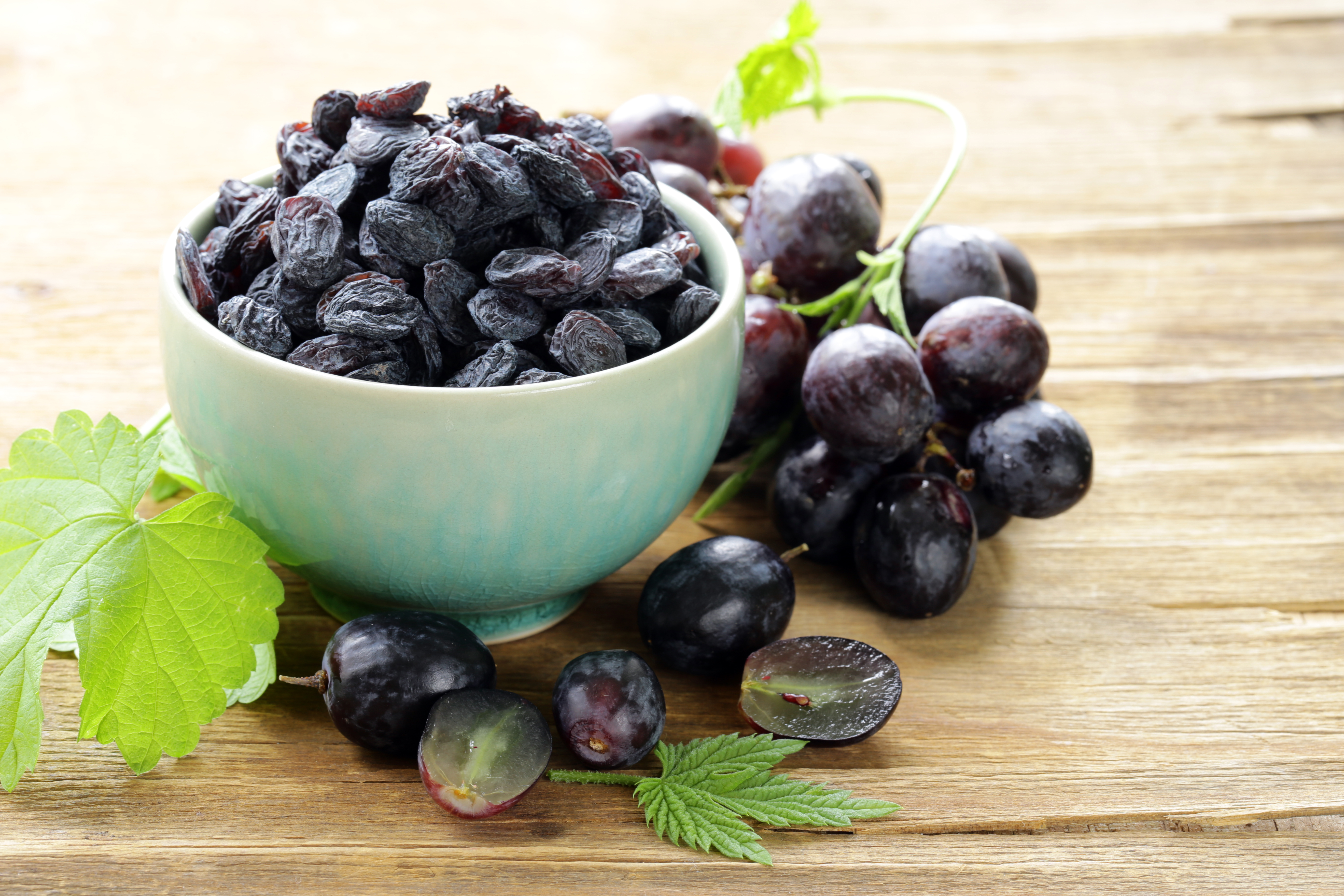
3. Onions and Garlic
Onions and garlic are common ingredients in many dishes, but they should never be shared with your dog. These kitchen staples can be harmful even in small quantities.
Why Can't Dogs Eat Them?
Onions and garlic can destroy a dog's red blood cells, leading to anaemia. This toxic effect is present whether raw, cooked, or powdered. Symptoms may not appear immediately, but they can be severe.
4. Avocado
Avocado, a popular fruit in many human diets, is a no-go for dogs. While we might enjoy it in salads or on toast, it's unsafe for canine consumption.
Why Is It Bad for Dogs?
The problem with avocados is persin, a substance that can cause vomiting and diarrhoea in dogs. The large seed also poses a choking hazard and can cause intestinal blockage if ingested.
5. Alcohol
Alcohol is a substance that should be kept away from dogs. Even small amounts in drinks or foods can be dangerous.
Why Can't Dogs Have It?
Alcohol can cause intoxication in dogs much quicker than in humans, leading to vomiting, disorientation, and, in severe cases, coma or death. It's important to keep all alcoholic beverages and foods containing alcohol out of reach.
6. Xylitol
Xylitol is a sugar substitute often found in sugar-free products such as gum and candy. While it's safe for human consumption, it's extremely toxic for dogs.
Why Is It Bad for Dogs?
Xylitol can trigger a rapid release of insulin in dogs, leading to hypoglycemia (low blood sugar), which can be life-threatening. Symptoms include vomiting, weakness, and seizures.
7. Coffee and Caffeine
Many rely on coffee for a morning pick-me-up, but caffeine is a big no for dogs. This includes coffee beans, grounds, and even tea.
Why Can't Dogs Have It?
Caffeine, like theobromine in chocolate, is highly toxic to dogs. It can cause hyperactivity, tremors, seizures, and heart problems. Even small amounts can be dangerous.
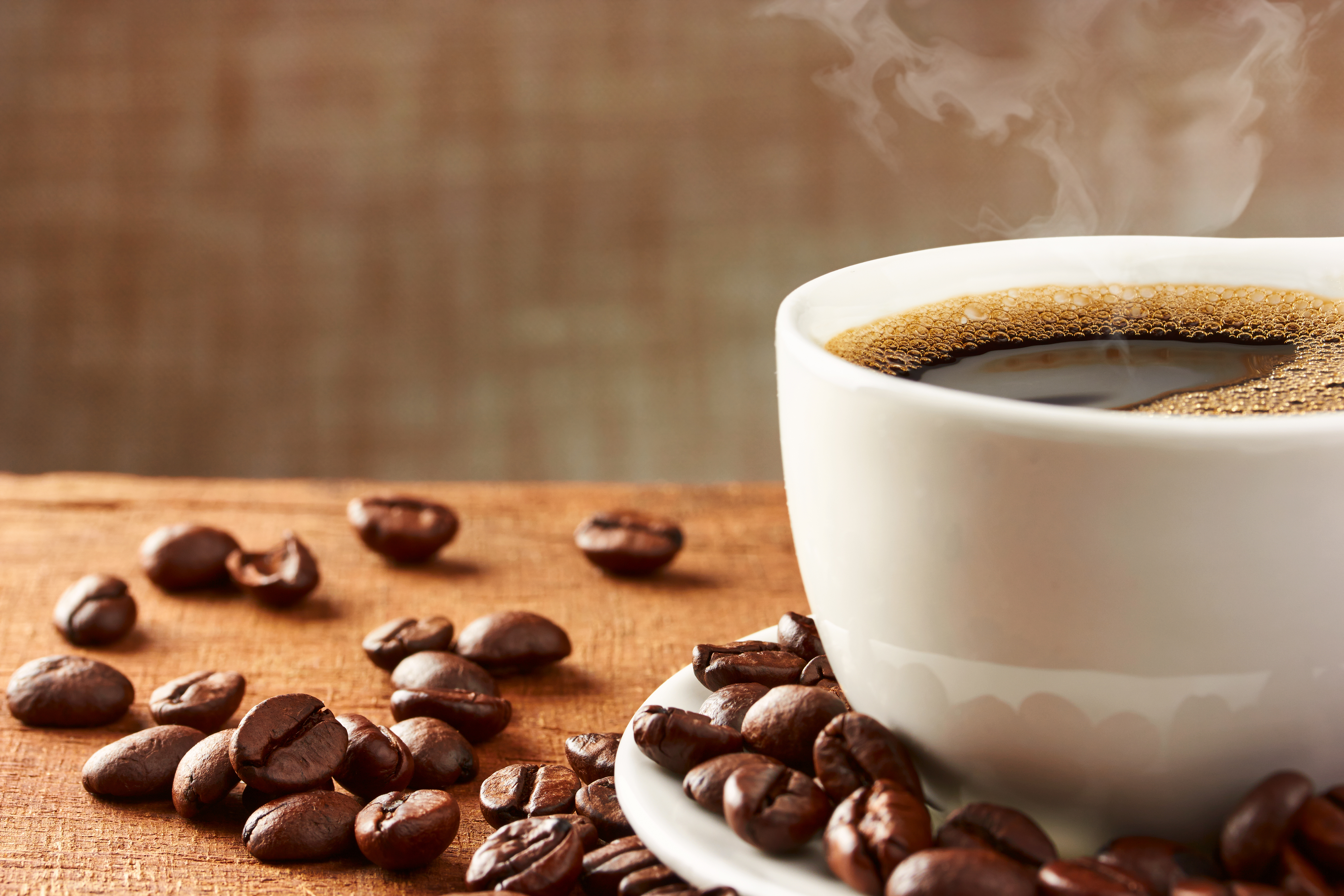
8. Macadamia Nuts
Macadamia nuts are often used in cookies and other baked goods, but they're one of the most poisonous foods for dogs.
Why Are They Bad for Dogs?
Small amounts of macadamia nuts can cause symptoms like weakness, vomiting, and hyperthermia in dogs. The exact reason for their toxicity is unknown, but they should be avoided at all costs.
9. Yeast Dough
Yeast dough, used for making bread and pastries, can be a hidden danger in the kitchen. While it's safe for humans once cooked, it's hazardous for dogs in its raw form.
Why Can't Dogs Eat It?
When ingested, yeast dough can rise in a dog's stomach, causing bloating and severe pain. Additionally, the fermentation process produces alcohol, which can lead to alcohol poisoning.
10. Bones
Bones, especially cooked bones, are commonly considered a good treat for dogs. However, they can be very dangerous.
Why Are They Bad for Dogs?
Cooked bones can splinter easily, causing choking or damaging your dog's intestines. Even uncooked bones, while less likely to splinter, can pose a risk of blockage or injury.
11. Milk and Dairy
Milk and dairy products might seem harmless, but they can be problematic for dogs. While the occasional small amount may not be harmful, regular consumption can lead to issues.
Why Can't Dogs Eat It?
Many dogs are lactose intolerant, meaning they can't properly digest lactose found in milk. This can lead to gastrointestinal upset, including diarrhoea and vomiting.
12. Salt
Excessive salt intake is not just a human health concern; it also affects dogs. While a little salt is necessary in a dog's diet, too much can be harmful.
Why Is It Bad for Dogs?
Too much salt can lead to sodium ion poisoning in dogs. Symptoms include excessive thirst, urination, vomiting, and, in severe cases, seizures and death.
13. Raw Eggs: A Risky Raw Treat
Raw eggs might be a health trend for humans, but they should be avoided in a dog's diet.
Why Can't Dogs Eat Them?
Raw eggs can contain bacteria like Salmonella and E. coli, which can cause food poisoning. Also, raw egg whites contain avidin, an enzyme that decreases the absorption of biotin (a B vitamin), which can lead to skin and coat issues.
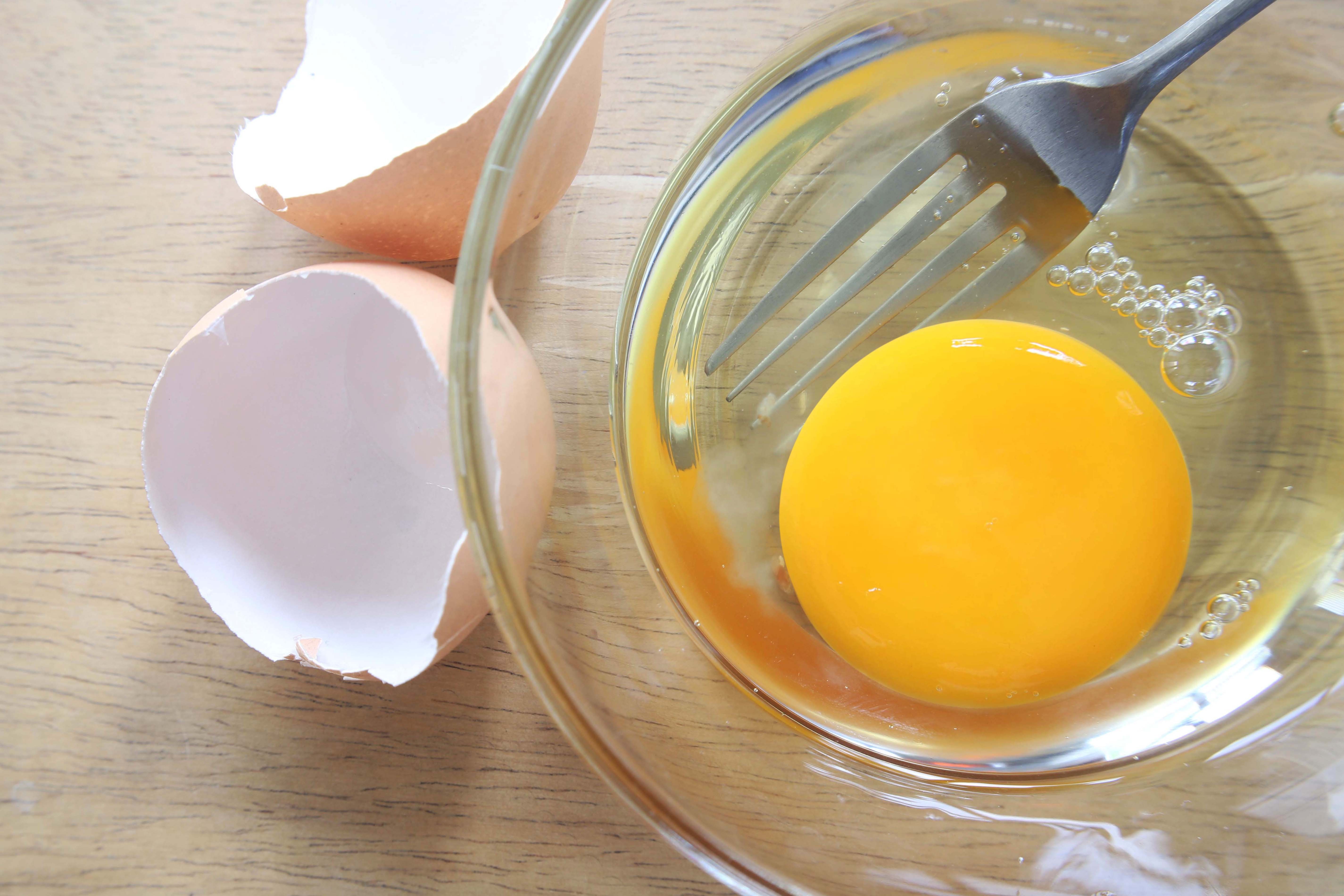
14. Raw Meat and Fish
Raw feeding is a popular trend, but raw meat and fish can be dangerous for dogs if not handled correctly.
Why Are They Bad for Dogs?
Raw meat and fish can contain bacteria and parasites that cause food poisoning. Certain types of fish, such as salmon, can also contain a parasite that causes "salmon poisoning disease," which can be fatal if not treated. Our Raw Feeding for Dogs and Cats Diploma Course can ensure you’re feeding your pets safely.
15. Candy and Gum
Candy, gum, and other sweet treats are often enticing to dogs but can contain harmful ingredients.
Why Can't Dogs Have It?
Apart from the already mentioned xylitol, sweets can cause tooth decay and obesity in dogs. They often contain high sugar levels and sometimes caffeine, which is also harmful.
16. Fat Trimmings
Fat trimmings from cooked and uncooked meat might seem like a tasty treat for your dog, but they can be dangerous.
Why Are They Bad for Dogs?
Fat trimmings can cause pancreatitis in dogs, a condition where the pancreas becomes inflamed. Symptoms include vomiting, abdominal pain, and diarrhoea.
17. Persimmons, Peaches, and Plums
While fruits like persimmons, peaches, and plums can be healthy for humans, they're not safe for dogs.
Why Can't Dogs Eat Them?
The seeds or pits from these fruits can cause intestinal blockage. Moreover, the pits contain cyanide, which is poisonous to both humans and dogs, but dogs may not know how to avoid them.
18. Human Vitamins
Human vitamins and supplements should never be given to dogs, especially those that contain iron.
Why Are They Bad for Dogs?
Vitamins formulated for humans can contain concentrations of vitamins and minerals that are too high for dogs, potentially leading to vitamin toxicity. Iron can also damage a dog's digestive system lining and be toxic to other organs.
19. Liver
While liver can be a healthy treat in small amounts, excessive consumption is not recommended for dogs.
Why Can't Dogs Have Too Much?
In large amounts, liver can cause vitamin A toxicity, which affects a dog's muscles and bones. Symptoms include deformed bones, excessive bone growth on the elbows and spine, and weight loss.
20. Nutmeg
Nutmeg, a common spice used in baking, is toxic to dogs and should be kept well out of their reach.
Why Is It Bad for Dogs?
Nutmeg contains myristicin, a compound that can cause seizures and central nervous system problems in dogs. Symptoms of nutmeg poisoning include disorientation, increased heart rate, high blood pressure, and seizures.
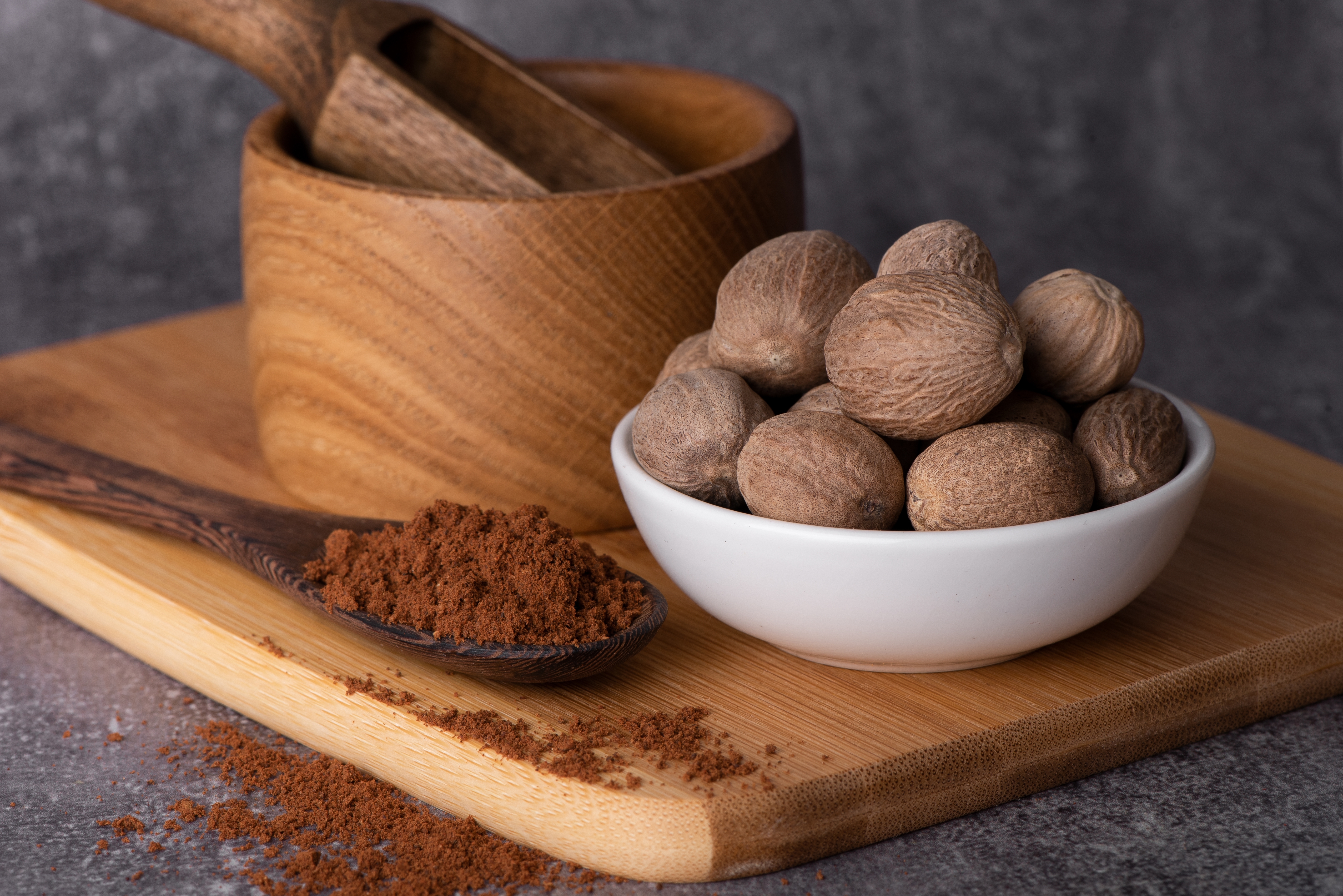
21. Corn on the Cob
Corn on the cob might seem harmless, but it poses a significant risk to dogs. While corn itself is not toxic, the cob can be problematic.
Why Can't Dogs Eat It?
The cob can cause a choking hazard or intestinal blockage if ingested. Unlike corn, which is digestible, the cob does not break down in a dog's stomach.
22. Citrus Fruits
Citrus fruits like oranges, lemons, and grapefruits are known for their vitamin C content but are not ideal for dogs.
Why Are They Bad for Dogs?
The citric acid in these fruits can cause stomach upset in dogs, especially if consumed in large amounts. The oils and compounds in the skin can also be harmful.
23. Mushrooms
Certain types of mushrooms, especially wild mushrooms, can be toxic to dogs.
Why Are They Bad for Dogs?
While some mushrooms are safe, others can be highly toxic, causing various symptoms, from gastrointestinal upset to severe organ failure and even death. It's best to prevent dogs from eating any mushrooms.
24. Ice Cream
Ice cream is a favourite among humans, especially during warmer weather, but it's not a suitable treat for dogs.
Why Can't Dogs Eat It?
Most dogs are lactose intolerant and cannot digest dairy products properly. Ice cream can cause digestive upset, including diarrhoea and vomiting.
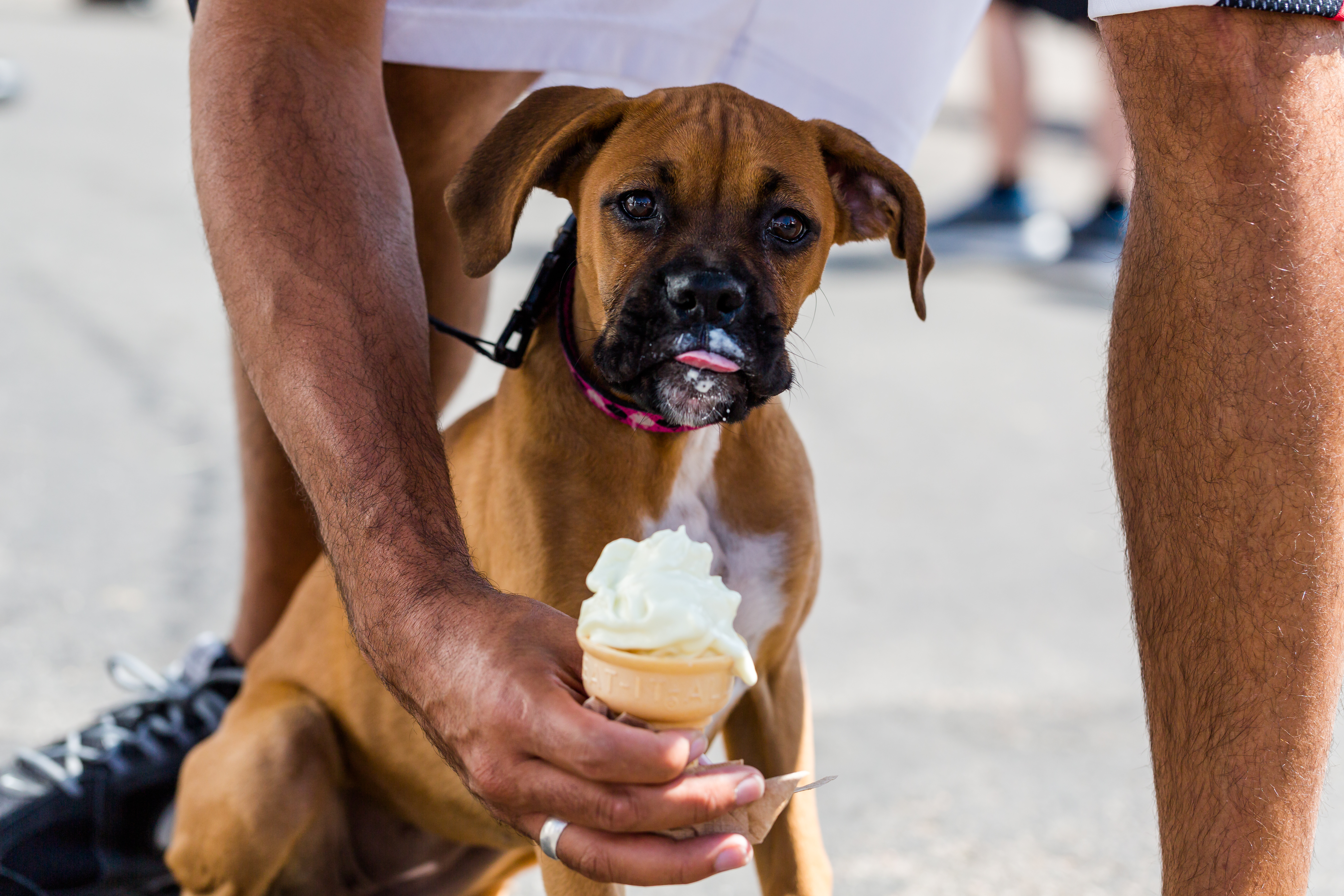
25. Fruit Pits and Seeds
Fruit pits and seeds from cherries, apricots, and apples can be hazardous for dogs.
Why Are They Bad for Dogs?
These pits and seeds can cause intestinal blockage. Additionally, many contain cyanide, a toxic substance for both humans and dogs, but it is particularly dangerous for dogs who may not avoid them.
26. Raw Potato
Raw potatoes, part of the nightshade family, contain solanine, which is toxic to dogs.
Why Can't Dogs Eat Them?
Solanine can cause gastrointestinal upset and, in larger amounts, can lead to more severe symptoms like heart problems, breathing difficulties, and neurological issues.
27. Hops
Hops, used in home brewing, are extremely poisonous to dogs.
Why Are They Bad for Dogs?
Ingestion of hops can cause a rapid increase in temperature, restlessness, and vomiting and can potentially lead to death. It is a lesser-known but very serious risk in homes that brew beer.
28. Blue Cheese
With its distinctive flavour and mould, blue cheese is a favourite for some cheese enthusiasts, but it's unsuitable for dogs.
Why Can't Dogs Eat It?
The mould in blue cheese can produce roquefortine C, which can be toxic to dogs. Consumption can lead to vomiting, diarrhoea, and more severe symptoms like high temperatures and seizures.
29. Bacon and Fatty Meats
Bacon and other fatty meats are often considered tasty treats for dogs, but their high-fat content makes them unsuitable.
Why Can't Dogs Have Them?
High-fat foods like bacon can cause pancreatitis in dogs, leading to digestive problems and abdominal pain. Regular consumption can also lead to obesity and related health issues.
30. Tuna
Tuna, a common fish in human diets, can be risky for dogs, especially when fed in large amounts.
Why Is It Bad for Dogs?
Tuna is high in mercury, which can be harmful to both humans and dogs in large quantities. It can lead to mercury poisoning, affecting the dog's nervous system.
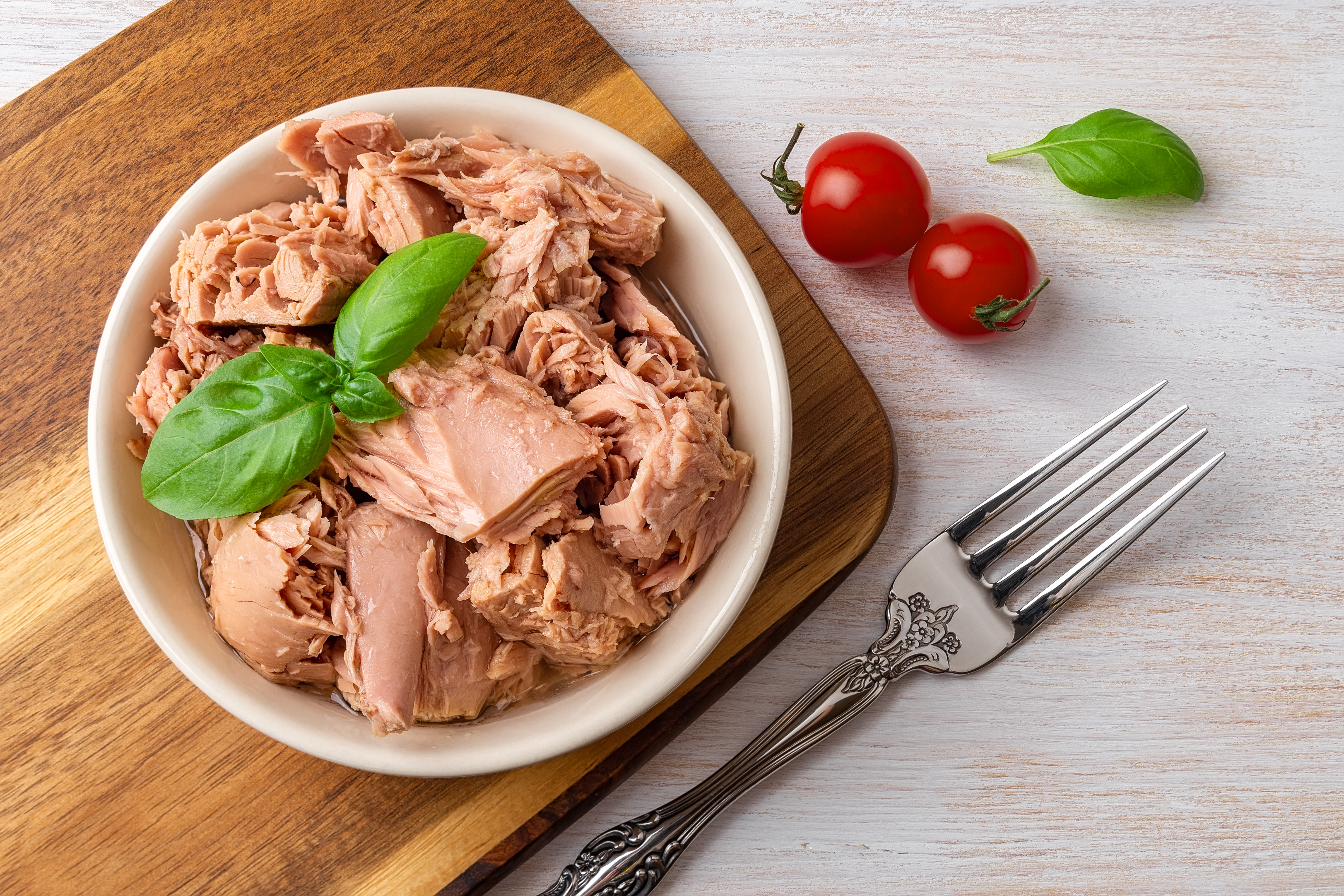
What to do if Your Dog Has Eaten Something Toxic
If your dog has eaten something toxic, acting quickly and calmly is important. Here's a step-by-step guide on what to do:
- Identify the Substance: Try to determine what your dog has eaten. If possible, keep a sample of the substance or its packaging. This can be crucial for the vet to understand what they're dealing with.
- Do Not Induce Vomiting Unless Instructed: Avoid inducing vomiting unless specifically instructed by a professional. In some cases, vomiting can make the situation worse.
- Contact Your Veterinarian or Emergency Vet Clinic: Immediately call your veterinarian or an emergency veterinary clinic. Provide them with as much information as possible, including the substance ingested, the amount, and when it happened.
- Follow Professional Advice: The vet may give you specific instructions over the phone, such as bringing your dog in immediately or administering a particular action at home.
- Keep Your Dog Calm and Comfortable: While you prepare to visit the vet, keep your dog calm and comfortable. Avoid giving them anything to eat or drink unless instructed by the vet.
- Transport Safely to the Vet: When transporting your dog to the vet, ensure they are safely secured. A calm and quiet environment can help reduce stress.
- Bring the Substance and Its Packaging: Bring the substance your dog ingested or its packaging with you. This can provide valuable information for treatment.
- Be Prepared for Treatment: Treatment can vary depending on the substance ingested. It may include inducing vomiting, administering activated charcoal (to absorb the toxins), IV fluids, or other specific treatments.
- Observe Your Dog Post-Treatment: After treatment, closely monitor your dog for any changes or deterioration in their condition. Follow any additional care instructions provided by your vet.
- Prevent Future Incidents: Take steps to prevent similar incidents in the future by keeping toxic substances out of reach and educating yourself on what is harmful to dogs.
Remember, time is of the essence when it comes to potential poisoning. Quick and appropriate action can make a significant difference in the outcome for your pet.
Recommended for you!
Best SellersWhat Should Not be in Dog Food?
When choosing dog food, it's important to be aware of harmful ingredients lurking within. Some common harmful ingredients include:
- Artificial Preservatives: Chemicals like BHA, BHT, and ethoxyquin can be harmful over time.
- Artificial Colours and Flavors: These can cause allergic reactions and offer no nutritional value.
- Excessive Fillers: Ingredients like corn and soy can be hard to digest and offer little nutritional value.
- Unspecified Meat Sources: Avoid products that list 'meat meal' or 'animal fat' without specifying the source.
Study Canine Nutrition for £29
As a dog owner, understanding what foods can harm your pet is vital for their health and wellbeing. Educating yourself about canine nutrition is a step forward in ensuring your dog's safety and happiness.
If you want to deepen your understanding of canine nutrition, why not explore our Canine Nutrition Diploma Course? This is an incredible opportunity to gain expert knowledge and skills, helping you to make the best dietary choices for your beloved pet. For a limited time, we're offering this comprehensive course at a discounted price of just £29!

